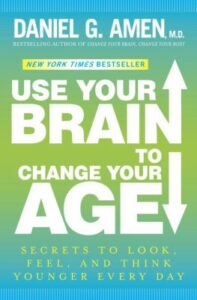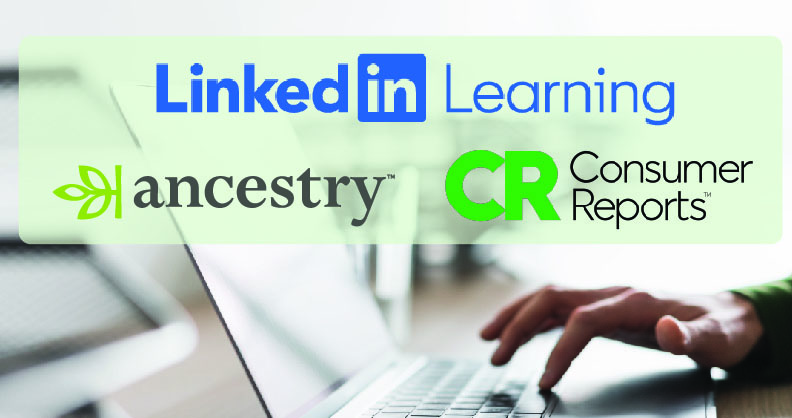I Forgot
By Victoria Lafean, Programming Librarian
 July 2 is known as “I Forgot Day.” If you are a forgetful person who frequently forgets anniversaries, birthdays, special occasions, or even to bring the milk from the store on your way back home, then this is the unofficial holiday you should be celebrating.
July 2 is known as “I Forgot Day.” If you are a forgetful person who frequently forgets anniversaries, birthdays, special occasions, or even to bring the milk from the store on your way back home, then this is the unofficial holiday you should be celebrating.
Did you know that according to some studies, walking through doors can create memory lapses? Psychologists believe that this is because when people walk through a door from one room to another, the transition indicates to the brain that the scene has changed, and all information gathered in the previous room or scenario is no longer needed. Which of course we still need that information, that is why we got up in the first place, isn’t it? To avoid these lapses and absentmindedness in the future, let’s focus on our brain health. The Manhattan Library has many books for your brain in their catalog.
All information about these books has been taken from our catalog, which you can visit at: https://catalog.manhattan.lib.ks.us/polaris/default.aspx
“Brain Energy: A Revolutionary Breakthrough in Understanding Mental Health–and Improving Treatment for Anxiety, Depression, OCD, PTSD, and More” by Christopher M. Palmer (Psychiatrist).
The main idea is this: Mental illness is caused by a metabolic disorder in cells, specifically in the brain cells’ mitochondria. Mitochondria are responsible for an INCREDIBLE array of metabolic functions in your cells, and especially in your brain. When you have anxiety? Your mitochondria are firing too hot. When you have depression? They’re not doing enough (or not able to do enough). “Do human cells have ‘drivers’ making the cells stop and go? It turns out that they do. The drivers of human cells, and human metabolism, are called mitochondria. And they are the common pathway to mental and metabolic disorders.”
Harvard psychiatrist Dr. Chris Palmer outlines a revolutionary new understanding that for the first time unites our existing knowledge about mental illness within a single framework: Mental disorders are metabolic disorders of the brain.
This groundbreaking book reveals: • Why classifying mental disorders as “separate” conditions is misleading • The clear connections between mental illness and disorders linked to metabolism, including diabetes, heart attacks, strokes, pain disorders, obesity, Alzheimer’s disease, and epilepsy • The link between metabolism and every factor known to play a role in mental health, including genetics, inflammation, hormones, neurotransmitters, sleep, stress, and trauma • The evidence that current mental health treatments, including both medications and therapies, likely work by affecting metabolism • New treatments available today that readers can use to promote long-term healing.
“Brain Health As You Age: A Practical Guide to Maintenance and Prevention” by Steven P. Simmons.
While we may expect to live longer, many wonder if their brains will keep up with their bodies. This book looks at typical functions and declines of an aging brain, the signs and symptoms of problems, the available treatments, the financial responsibilities, and the factors that determine what kinds of care people might need as they age.
The book covers a surprising amount of ground. It starts with understanding what affects natural aging has on the brain and what owners of healthy aging brains can expect. It provides an impressive list of specific strategies that readers can use to help keep their brains active and healthy. From there, the book goes into unhealthy aging brains. Specifically, this means exploring the varying levels and types of impairment (such as dementia). It explains what is normal (or not), what to expect and how conditions progress. I think the most valuable aspect of the book, however, is its last quarter, which discusses in very practical terms how to prepare for, deal with and address the effects of cognitive impairment from the perspectives of both a potential patient and a prospective caregiver.
“Power Up Your Brain: The Neuroscience of Enlightenment” by David Perlmutter.
The quest for enlightenment has occupied mankind for millennia. Perlmutter explores the exciting phenomena of neurogenesis and mitochondrial health, while Villoldo brings his vast knowledge of shamanic and spiritual practices to the table. Together they draw from the most powerful tools in each discipline to create the Power Up Your Brain program, a ground-breaking, five-week plan that helps prime the brain for enlightenment. It pairs a scientific approach, teaming a Neurologist with a Shaman to mix a clear and compelling description of what is happening neurologically with spiritual practices that help awaken the brain. The “Power Up Your Brain” program includes diet, dietary supplement, physical exercise, shamanic exercises, meditation, and relationship practices and changes. The program is a 5-week timespan. Perlmutter states, “Experience coupled with attention leads to physical changes in the structure and future functioning of the nervous system. This leaves us with a clear physiological fact . . . moment by moment we choose and sculpt how our ever-changing minds will work, we choose who we will be the next moment in a very real sense, and these choices are left embossed in physical form on our material selves.”
Other titles that can be found are: · “Unleash the Power of the Female Brain: Supercharging Yours for Better Health, Energy, Mood, Focus, and Sex” by Daniel G. Amen. · “The Gut-Brain Paradox: Improve Your Mood, Clear Brain Fog, and Reverse Disease by Healing Your Microbiome” by Steven R. Gundry. · “The Ageless Brain: How to Sharpen and Protect Your Mind for a Lifetime” by Dale E. Bredesen. · “Use Your Brain to Change Your Age: Secrets to Look, Feel, and Think Younger Every Day” by Daniel G. .
Hopefully, these resources can help you get your brain in tip-top shape so you can purposely forget “I Forgot Day” next year.
Manhattan Public Library is a cornerstone of free and equal access to a world of ideas and information for the Manhattan, Kansas, community. Learn more at mhklibrary.org.

